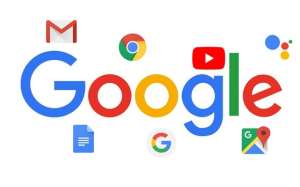
Ama: Ma’am! Have you ever travelled to an unknown place you don’t understand their language?
Disability Activist: Yes, I have.
Ama: How did you communicate with them?
Disability Activist: Through gestures?
Ama: And what was the outcome of the conversation?
Disability Activist: It was difficult. There was miscommunication leading to wrong recommendations.
Ama: How did it feel?
Disability Activist: It felt horrible!
Ama: hmmmm…Yes that is what happens when I visit the hospital.
This is a conversation that took place between Ama (a Deaf person) and a disability inclusion activist through an interpreter. Her predicament seems to confirm what Martin Luther King Jnr said, “Of all the forms of inequality, injustice in health care is the most shocking and inhumane’’.
Approximately, 5.3% (360 million people) of the world’s population are affected by hearing loss. However, few medical practitioners (doctors, nurses, midwives and medical laboratory technician) know Sign Language and are proficient in it.
In view of this, the nursing and midwifery council of Ghana for the past three years has incorporated sign language in their curriculum. Also, the College of Health Science, Kwame Nkrumah University of Science and Technology also did same by incorporating sign language course for all health relate programme in the college. However, the course in both Tertiary institutions is not scored on their records. Consequently, it is doubtful if the students will take the course seriously. Also, there is a sign language interpreter directory in every regional hospital in Ghana with names of sign language interprets who have been trained to provide interpretation service to Deaf people. But little is known about the availability of these interpreters and the appropriateness of services they provide to Deaf people.
Anecdotal evidence suggests that Deaf people in many communities in Ghana are facing inhumane treatment as a result of the little attention paid to their communication need. What is mostly discussed among Deaf people is lack of ACCESS. Access here encompasses access to health services and health information. But not much has been done to make health care accessible to them.
In achieving sustainable development goal, which talks about equal access to health care, few questions concerning the health care of Deaf people need to be answered. The first question is; do we as a nation show much concern about how Deaf people access health services and information? Do we make health information on the media accessible to Deaf people? Have we thought about how Deaf people access health services and information in some key areas like sexual and reproductive health issues? That is, how do Deaf people have access to information related to their sexual and reproductive right? These questions need to be answered by families, friends, caregivers, policy makers and implementers.
Back to the conversation between Ama and the disability inclusion activist, the activist asked how she satisfies her health needs. Ama said she searches Google for illness and its treatment and when she finishes, she said, ‘’ I just write the drug and take it to the pharmacy and get it’’. The activist was astonished as Ama felt comfortable using that approach to meet her healthcare needs.
Honestly speaking, you can’t rely on the internet for medication but she preferred that probably due to the injustice and inhuman nature of our healthcare system. She has resorted to self-medication which is atrocious and awful for her health.
The way forward to curb such hidden attitude that’s indirectly linked to death can be training more qualified medical personnel which will ensure the confidentiality of the deaf and provide accessible healthcare.




 Dumsor: Don't rush to demand timetable; the problem may be temporary — Atik Moha...
Dumsor: Don't rush to demand timetable; the problem may be temporary — Atik Moha...
 Space X Starlink’s satellite broadband approved in Ghana — NCA
Space X Starlink’s satellite broadband approved in Ghana — NCA
 2024 election will be decided on the grounds of the economy; choice of running m...
2024 election will be decided on the grounds of the economy; choice of running m...
 Dumsor: We're demanding less; just give us a timetable — Kwesi Pratt to ECG
Dumsor: We're demanding less; just give us a timetable — Kwesi Pratt to ECG
 Do I have to apologise for doing my security work, I won’t – Simon Osei-Mensah r...
Do I have to apologise for doing my security work, I won’t – Simon Osei-Mensah r...
 All my businesses have collapsed under Akufo-Addo — NDC Central regional chair
All my businesses have collapsed under Akufo-Addo — NDC Central regional chair
 Military, Prison Officers clash in Bawku, three injured
Military, Prison Officers clash in Bawku, three injured
 GRA-SML contract: MFWA files RTI request demanding KPMG report
GRA-SML contract: MFWA files RTI request demanding KPMG report
 Court threatens to call second accused to testify if NDC's Ofosu Ampofo fails to...
Court threatens to call second accused to testify if NDC's Ofosu Ampofo fails to...
 Family accuses hospital of medical negligence, extortion in death of 17-year-old...
Family accuses hospital of medical negligence, extortion in death of 17-year-old...
